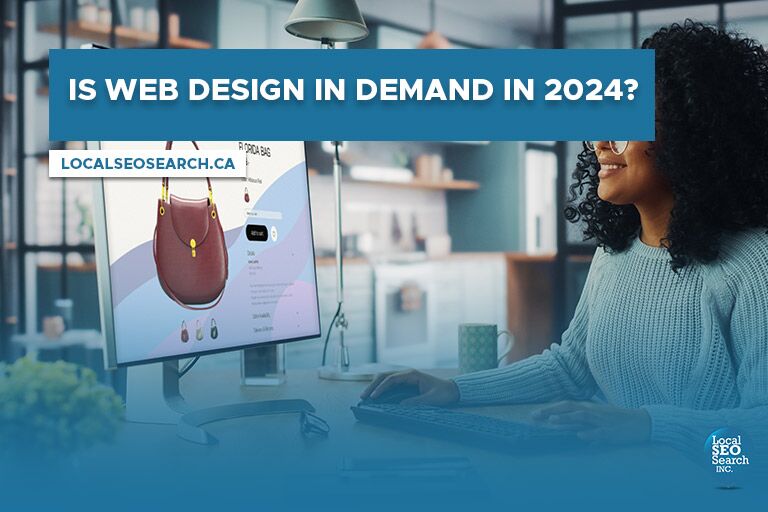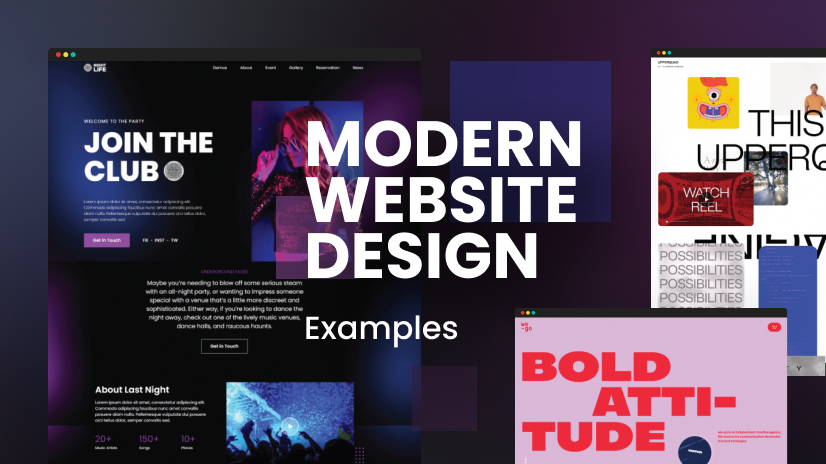Boost Interaction With Ingenious Internet Site Layout Solutions
An attentively crafted individual experience, underpinned by tactical visual style and interactive elements, can dramatically improve customer engagement. By discovering different methodologies such as receptive style and individualized content, organizations can create a system that not just mesmerizes customers but likewise fosters long-lasting commitment.
Comprehending Customer Experience
Understanding customer experience (UX) is essential for producing effective web site layout remedies, as it directly influences just how users connect with electronic platforms. A thorough UX technique includes various elements, consisting of customer, functionality, and access satisfaction, every one of which add to the total performance of a website.
To start with, functionality focuses on exactly how quickly individuals can navigate and locate the details they look for. Availability makes sure that all individuals, including those with disabilities, can effectively communicate with the website.
In addition, recognizing user identities is vital for customizing the experience to satisfy certain target market needs. By performing individual research and testing, developers can gather understandings that notify style choices, guaranteeing the website not just meets aesthetic goals yet likewise meets functional requirements. Inevitably, a thoughtful method to UX layout promotes involvement, motivates retention, and enhances general user fulfillment, which are essential for the success of any kind of digital platform.
Visual Layout Strategies
Incorporating efficient aesthetic design methods is necessary for recording individual focus and enhancing the general customer experience on a site. A well-balanced visual pecking order guides users with the web content, allowing them to quickly browse and take in information. This can be accomplished through the tactical usage of typography, color design, and spacing, which jointly create a cohesive and appealing design.
Shade plays a pivotal function in stimulating feelings and establishing brand name identification. Using a balanced shade combination that lines up with the brand's ethos can foster experience and depend on. Additionally, including top quality pictures and graphics improves visual charm and can significantly improve user interaction.
Whitespace, commonly forgot, is equally essential as it allows content to breathe and stops frustrating individuals with clutter. It helps with less complicated reading and comprehension, leading to a more enjoyable browsing experience.

Interactive Components for Involvement

One secret element of interactive style is personalization. Customizing experiences based upon customer actions and choices can significantly boost interaction. Individualized material suggestions or dynamic user interfaces that adjust to private selections develop a sense of ownership and significance, motivating customers to discover additionally.
Gamification is one more powerful approach. Integrating game-like aspects, such as accomplishments or rewards for finishing tasks, can change ordinary interactions right into delightful experiences. This method not just improves interaction but additionally encourages customers to return, producing a loyal audience.
Moreover, interactive aspects can facilitate social sharing, intensifying a web site's reach. Functions like remark sections, share switches, and user-generated content locations foster community communication, turning site visitors into active individuals (website design copyright). Inevitably, the calculated usage of interactive elements is essential for producing a compelling and interesting internet site that resonates with individuals
Adaptive and receptive Design
A well-designed website needs to focus on flexible and receptive design to make sure optimum user experiences across a range of tools and screen dimensions. Receptive layout employs fluid grids and versatile photos, allowing the layout to immediately change based upon the viewer's display size. This method makes certain that customers can quickly browse and interact with the material, regardless of whether they are using a smartphone, tablet, or desktop .
In contrast, flexible style uses predefined designs that are customized to specific tool categories. This suggests that the internet site detects the kind of device being used and serves the appropriate format, which can boost loading times and optimize the display of important elements. check While both strategies intend to enhance functionality, responsive design is often preferred for its fluidity and seamless shift between devices.
Including flexible and responsive design not just improves user satisfaction but additionally positively impacts internet search engine rankings. Internet search engine focus on mobile-friendly sites, hence boosting visibility and bring in more site visitors. Spending in these design methods is critical for organizations looking to involve their target market successfully and maintain an affordable side in today's digital landscape.
Studying Individual Feedback and Data

Analyzing metrics such as bounce rates, time on web page, and click-through rates uses a measurable point of view on user interaction. These metrics aid designers determine which material reverberates and which areas may call for optimization. A/B testing can be utilized to review variants in design, enabling developers to make enlightened choices based on user interactions.
Incorporating individual comments not just boosts website usability yet also promotes a sense of neighborhood and depend on. Involving with individuals via feedback loopholes grows commitment and urges repeat sees. Inevitably, leveraging customer responses and information evaluation is integral to developing a vibrant, user-centered website that adjusts to evolving user needs and choices, therefore driving greater involvement and satisfaction.
Final Thought
To conclude, ingenious site design remedies dramatically enhance user involvement by focusing on user experience, using efficient visual methods, and incorporating interactive elements. The execution of receptive and adaptive layout makes sure availability across different devices, better fostering customer communication. Continuous evaluation of user responses and information assists in ongoing renovations, resulting in continual fulfillment and loyalty. Inevitably, the convergence of these layout principles grows Home Page an appealing online setting, crucial for driving long lasting customer participation and dedication.
An attentively crafted customer experience, underpinned by strategic visual style and interactive aspects, can significantly enhance individual interaction.Including reliable aesthetic style strategies is important for catching customer attention and enhancing the total user experience on a website.User feedback and data analysis are vital components of efficient site style, as they offer useful understandings right into user behavior and choices. Inevitably, leveraging customer responses and information analysis is Click Here integral to creating a vibrant, user-centered internet site that adjusts to progressing individual needs and preferences, thereby driving greater involvement and satisfaction.
In verdict, ingenious web site style services significantly boost customer interaction by prioritizing user experience, using efficient visual strategies, and incorporating interactive aspects.
Comments on “How Website Design in copyright Can Drive Traffic and Improve SEO”